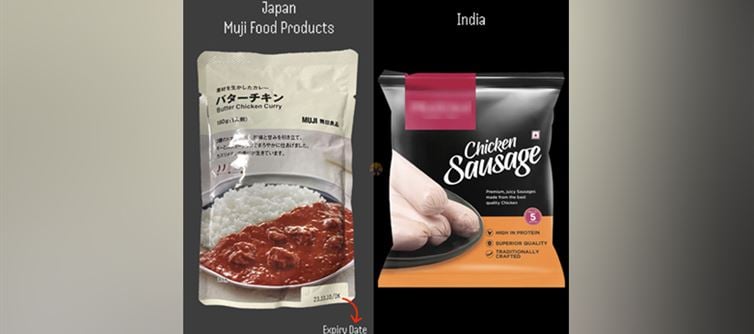
Every indian meal today comes with a pinch of salt — and a dash of doubt.
Behind every food packet that proudly flashes an FSSAI license number, there’s a growing public question: what does that number even mean anymore?
While genuine entrepreneurs drown in paperwork and arbitrary “queries,” large-scale adulterators keep churning out unsafe food with official approval stamps.
The result? A regulatory body that was meant to protect consumers has instead become a bureaucratic bazaar — where safety takes a backseat and corruption drives the cart.
1️⃣ FSSAI: The Watchdog That Forgot How to Bark
Once envisioned as the country’s ultimate food guardian, the Food Safety and Standards Authority of India now functions more like a rubber-stamp office. Instead of guarding public health, it’s often accused of shielding corporate convenience. Licenses flow easily for those with influence — but small, genuine businesses face endless harassment over trivialities.
2️⃣ When Paperwork Becomes Punishment
Ask any honest food entrepreneur and you’ll hear the same story: applications returned again and again, each time with a new “query.” The system thrives on exhaustion. Many give up or pay up — a silent admission that bribery, not compliance, oils the machine. The message is clear: in india, food safety is not earned — it’s bought.
3️⃣ Adulteration Nation: The Cost of Corruption
From milk laced with detergent to spices mixed with sawdust, India’s food adulteration crisis isn’t a hidden scandal — it’s a daily reality.
Yet randomized testing, surprise raids, and genuine inspections remain rare and reactive. Instead of prevention, we get post-scandal outrage. And in a country where adulteration drives lifestyle diseases and cancer rates, that’s not inefficiency — it’s criminal negligence.
4️⃣ The Bribe Economy of Food Licensing
You can buy a license faster than you can get a lab report.
Middlemen openly advertise “FSSAI approvals in 48 hours” — a service that shouldn’t even exist. When a regulatory system becomes transactional, it stops being protective.
It’s not about ensuring food safety anymore — it’s about ensuring bureaucratic profit margins.
5️⃣ Japan Prints Expiry Dates on the Front — india Prints Excuses
Compare India’s FSSAI labels with Japan’s consumer packaging, and the difference is humiliating.
In japan, expiry dates, allergen details, and storage warnings are printed boldly and transparently — front and center. In India? Tiny, faded text buried behind glossy branding. The FSSAI claims to set standards, but can’t even standardize legibility. Food safety begins with transparency, and india has neither.
6️⃣ Public health Is Paying the Price
Adulteration isn’t just an ethical failure — it’s a public health emergency.
From chronic kidney disease to gut disorders, the ripple effects of contaminated food touch millions. Yet FSSAI’s testing network remains grossly understaffed and underfunded, while policy decisions cater to industry giants instead of citizens.
7️⃣ What a Real Regulator Looks Like
Around the world, food authorities operate with scientific rigor and consumer-first ethics.
In singapore or japan, a single contamination incident can lead to immediate recalls, investigations, and public disclosures. In india, it leads to a press release — or silence.
Accountability is optional, consequences are negotiable, and public trust is treated like disposable packaging.
🔥 CLOSING SHOT
FSSAI’s tagline may talk about “safe and wholesome food,” but on the ground, India is being slowly poisoned by apathy and corruption.
Until the system prioritizes safety over signatures and inspections over influence, that license number on your food packet isn’t a mark of trust — it’s a stamp of compromise.
Because right now, FSSAI doesn’t say “Eat Safe”.
It says: “Eat whatever you want — we’ll approve it later.”




 click and follow Indiaherald WhatsApp channel
click and follow Indiaherald WhatsApp channel